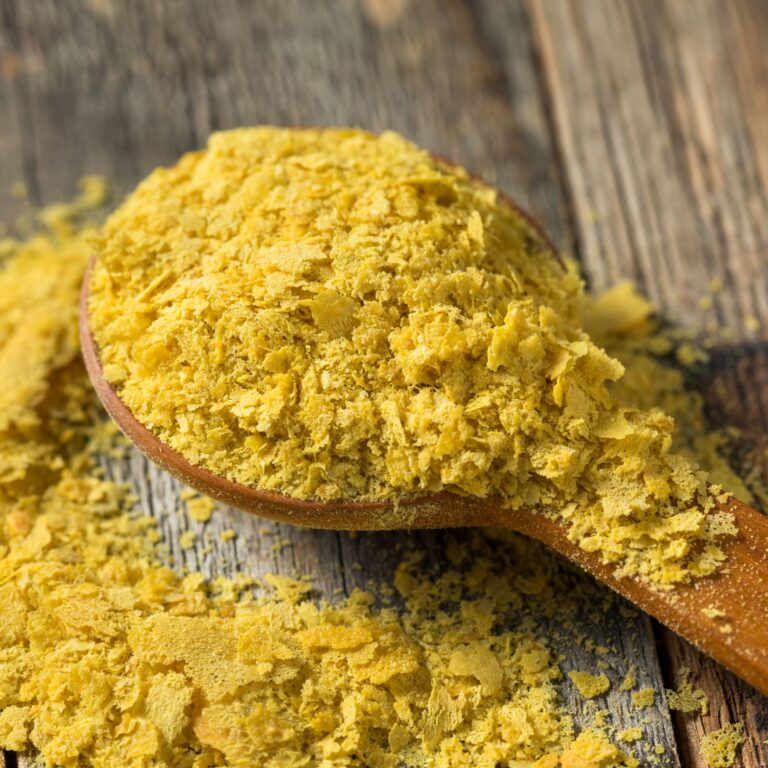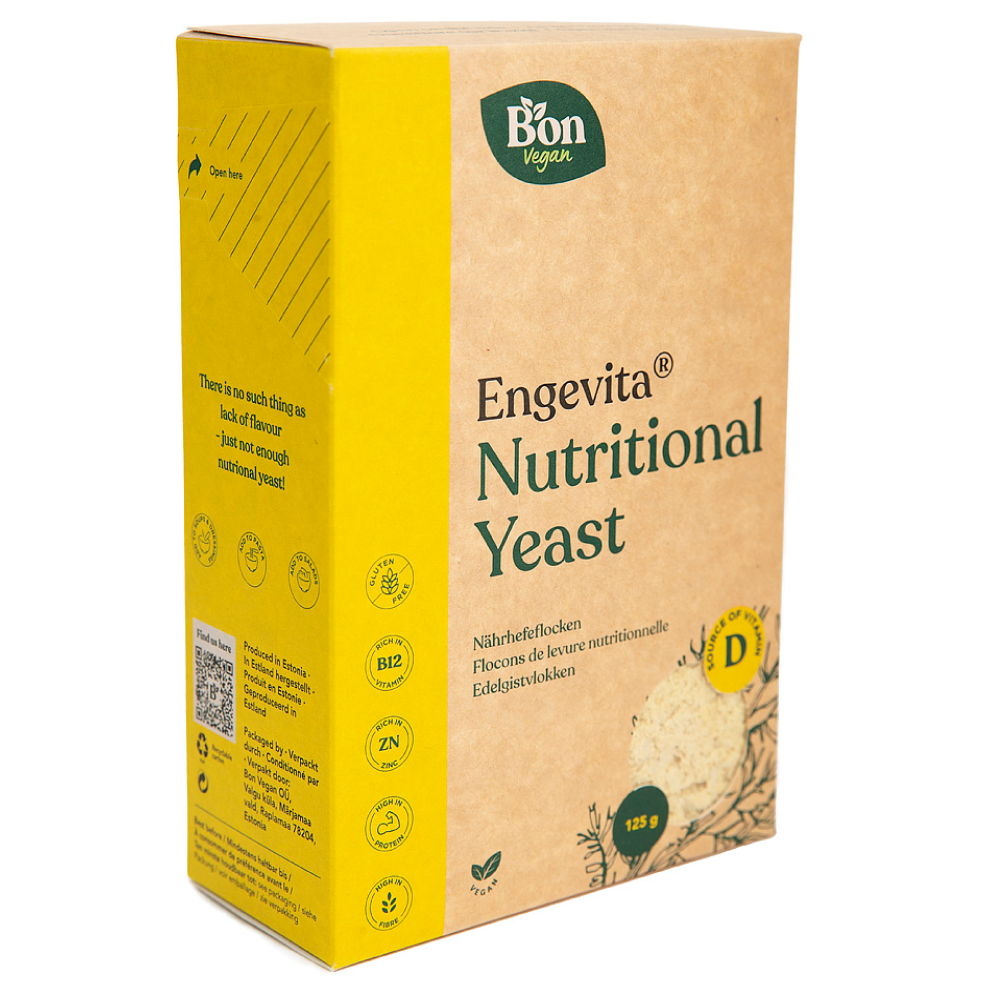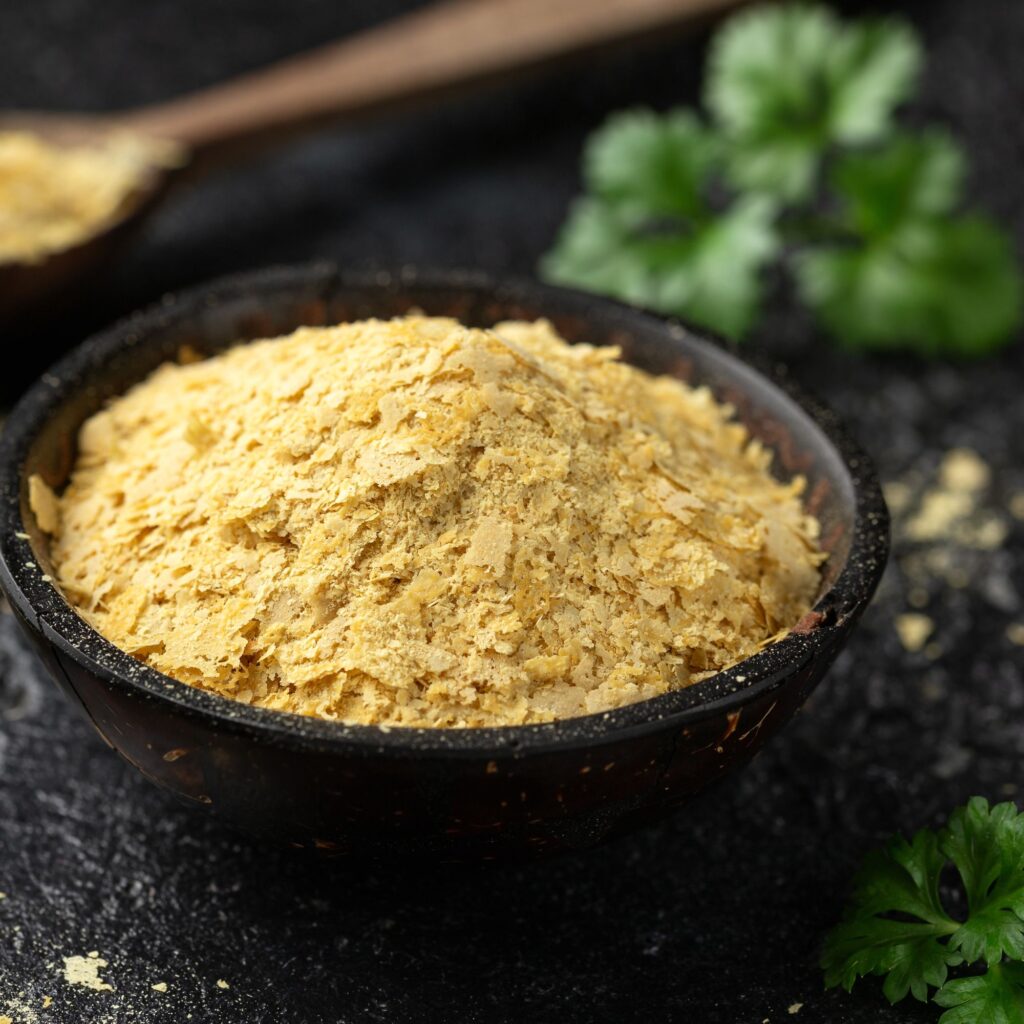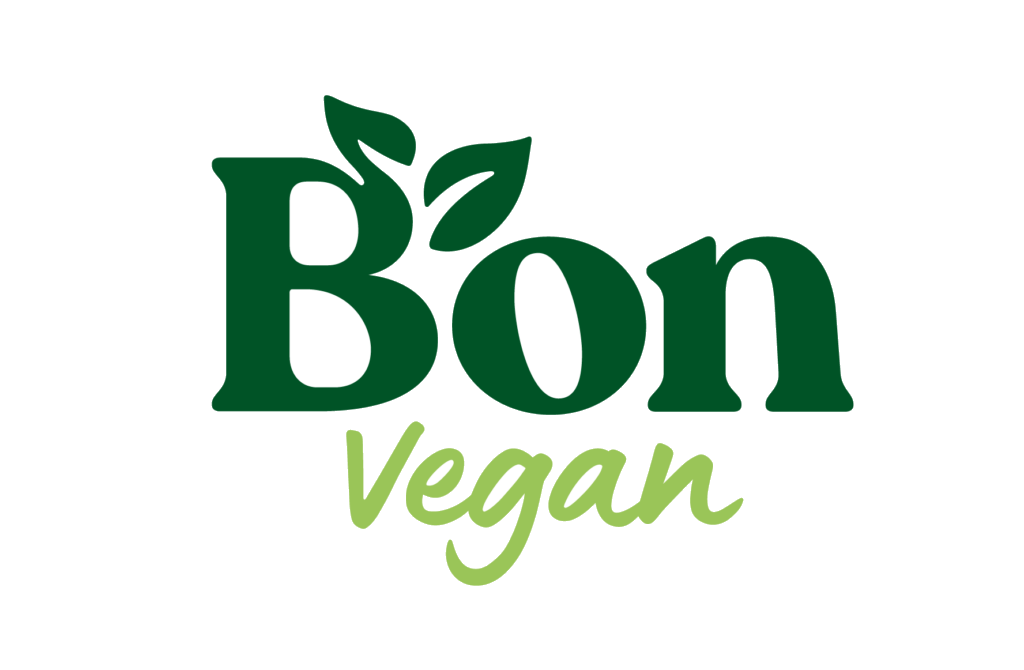Nutritional yeast: a vitamin- rich treat on your plate
Nutritional yeast (often referred to as nooch) has become a valued ingredient in the kitchen, bringing a variety of flavours to dishes and adding essential vitamins. Nutritional yeast not only enriches the flavour of food, but also provides a rich source of B vitamins and zinc. Let’s take a closer look at how nutritional yeast is produced, how it is used and what its beneficial properties are.
Nutritional yeast is produced by culturing yeast fungi, as they convert carbohydrates and sugars into nutrients, thereby giving a pleasant, umami-like flavour and aroma profile. This process enriches the yeast with several B vitamins and zinc. B vitamins such as B1 (thiamine), B2 (riboflavin), B3 (niacin), B6 (pyridoxine) and B9 (folic acid) are essential for energy metabolism, nervous system function and red blood cell formation. Zinc is a micronutrient that plays a role in strengthening the immune system, cell growth and division, and wound healing. Nutritional yeast is able to produce many of the vitamins itself during the cultivation process, but can also absorb them from the environment to which they are added, thus becoming particularly rich in vitamins.
The yeast production process involves careful control and monitoring to ensure a high quality end product. The “food” for the yeast cells, the culture medium on which the yeast grows, is essential to produce a high quality flavoured yeast. Only the highest quality feed is used to grow Bon Vegan nutritional yeast.

Nutritional yeast with vegan vitamin D

Nutritional yeast with vegan vitamin D differs from conventional yeast in its vitamin D content. UV light stimulates the yeast cells to produce natural vitamin D, which is particularly important in winter time when sunshine is scarce. Thus, UV-treated yeast naturally contains vitamin D in the form of vitamin D2, which is the plant form of vitamin D.
Vitamin D also plays an important role in calcium absorption, strengthening bones and supporting the immune system. So, in addition to the flavour explosion we already know, nutritional yeast provides essential vitamins along with vitamin D.
How is it used and what are the benefits?

Nutritional yeast is used in a variety of ways in cooking. It is added to soups, salads, pasta, sauces and many other dishes to give them a rich cheesy flavour. It is not recommended to heat the yeast in order to retain its vitamins. It is, however, worth adding or sprinkling over dishes at the final stage of food preparation.
Yeast flakes add a full, deep flavour to other foods, making nutritional yeast an indispensable ingredient in a variety of dishes. The umami flavour is known to be pleasantly addictive, bringing out the natural flavour nuances of the food. It is often referred to as the well-kept vegan secret, as it is the only plant- based product that can truly deliver a delicious parmesan taste.
The benefits of nutritional yeast go beyond flavour and nutrients. It is high in full protein, making it an attractive choice for those looking to enrich their diets with plant based protein. Bon Vegan nutritional yeast has as much as 47 grams of protein per 100 grams. This makes it an excellent choice for athletes, health-conscious people and anyone who wants to eat a balanced diet.
Environmental sustainability also plays an important role in the production of organic yeast. Cultivating nutritional yeast is a resource-efficient process that does not require large areas of land or water resources compared to, for example, animal protein production.
All in all, flavour yeast is a versatile ingredient that not only makes food tastier, but also offers a number of benefits in terms of the nutrients it contains, including vitamins. Therefore, not only is nutritional yeast a delicious magic in the kitchen, it is also a nutrient-rich choice for the everyday diet.
